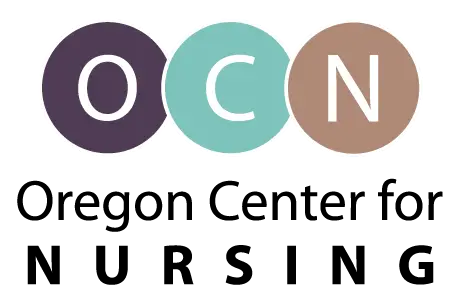Janette Wilkinson, MN, PMHNP
Find a Nursing School in Oregon
Psychiatric Mental Health Nurse Practioner
Willamette Health & Wellness in Portland, OR
Your Nursing Career Begins with the Right Education
A successful nursing career starts with the right education, with different types of degrees and licensure. Oregon offers a wide range of accredited nursing programs designed to meet students wherever they are—whether you're just beginning your career or returning to school to advance your practice.
Should you become a Registered Nurse (RN) or a Licensed Practical Nurse (LPN)? The answer is entirely individualized! There's no “typical” route nursing professionals take—it depends on you and your career goals. In Oregon, RNs and LPNs work across a variety of practice areas and are essential contributors to the care of their patients.
In Oregon, RNs and LPNs have slightly different scopes of practice. For example, the registered nurse is typically charged with care planning, initial patient assessment, and leading patient education. In addition, there are specific clinical skills that can only be performed under an RN license, such as blood transfusions. However, you can find LPNs and RNs working across almost every practice setting in Oregon, including acute care. Read more about the differences between these two license types.

Explore Oregon-based nursing programs based using our interactive map
You’ll find details about each program, including type, enrollment, NCLEX pass rates, average cost, and accreditation. This map excludes out-of-state graduate and advanced practice programs approved by the Oregon State Board of Nursing (OSBN). For the most current information on offerings and admissions, be sure to contact programs directly.
Types of Nursing Degrees and Programs

Licensed Practical Nurse (LPN)
A Licensed Practical Nurse (LPN) program is typically a one-year, stand-alone program that leads to a certificate of completion and eligibility to take the NCLEX-PN exam. LPNs deliver individualized care under the supervision of a Registered Nurse (RN), Advanced Practice Nurse, physician, or dentist in a variety of healthcare settings.

Associate Degree in Nursing (ADN)
The Associate Degree in Nursing (ADN) is a two-year degree program typically offered through community colleges. It is often considered a more affordable route to RN licensure. After completing the required prerequisites, students focus on direct patient care and become eligible to take the NCLEX-RN exam, which is required to become a Registered Nurse (RN).

RN to BSN Programs
Designed for currently licensed RNs with an ADN, RN to BSN programs offer a pathway to complete a Bachelor of Science in Nursing. These programs typically take about one year of full-time study and expand nursing knowledge in leadership, evidence-based practice, and community health. Many of these programs are offered online and are accessible to nursing professionals already working part-time or full-time in a healthcare setting.

Bachelor of Science in Nursing (BSN)
The Bachelor of Science in Nursing (BSN) is a four-year degree that prepares students for a broader range of roles in nursing. In addition to clinical care, BSN programs include coursework in family and community health, nursing leadership, research, and management. Graduates must pass the NCLEX-RN exam to become licensed RNs.

Accelerated Bachelor of Science in Nursing (ABSN)
The Accelerated BSN (ABSN) is a fast-track option for students who already hold a non-nursing bachelor’s degree. These intensive programs take 12 to 18 months to complete and lead to eligibility for the NCLEX-RN exam.

Alternate Entry Master’s Programs (AEM)
Also known as Direct-Entry or Master’s Entry programs, AEM pathways are designed for individuals who hold a non-nursing bachelor’s degree. These intensive programs take 28 to 36 months and result in a master’s degree in nursing (MSN or MN). Graduates are eligible to sit for the NCLEX-RN exam.

Master’s Degree in Nursing (MSN or MN)
The Master of Science in Nursing (MSN) or Master of Nursing (MN) is a graduate-level program that prepares nurses for advanced and specialized roles. Students often choose from common tracks, such as Nurse Practitioner (NP), Clinical Nurse Specialist (CNS), Nurse Educator, Nurse Midwife, Nurse Anesthetist, and others. Most MSN programs require a BSN for admission, though some accept other qualifications depending on the specialty. Many NP programs prepare students for independent practice.

Doctor of Nursing Practice (DNP)
The Doctor of Nursing Practice (DNP) or PhD in Nursing is a clinical doctorate-level degree designed for advanced practice nurses. The curriculum emphasizes topics such as advanced clinical practice, leadership, organizational change, and application of clinical research. Candidates typically enter PhD programs with a BSN or MSN and are committed to advancing nursing science. DNP programs typically do not prepare students for independent practice.
